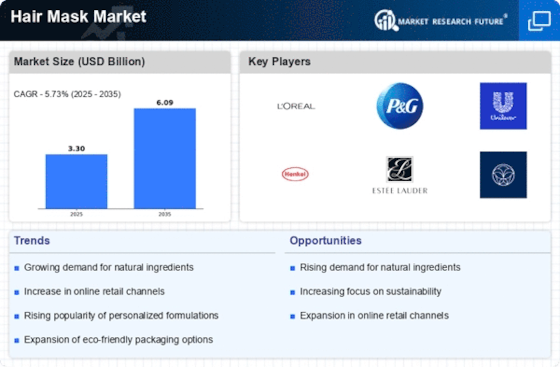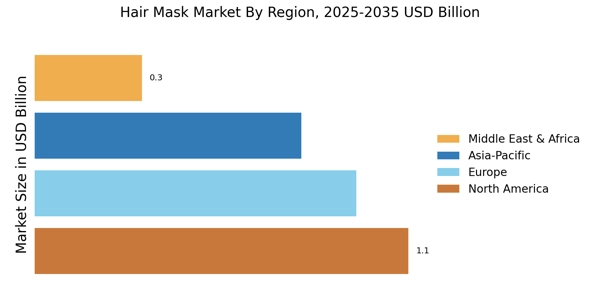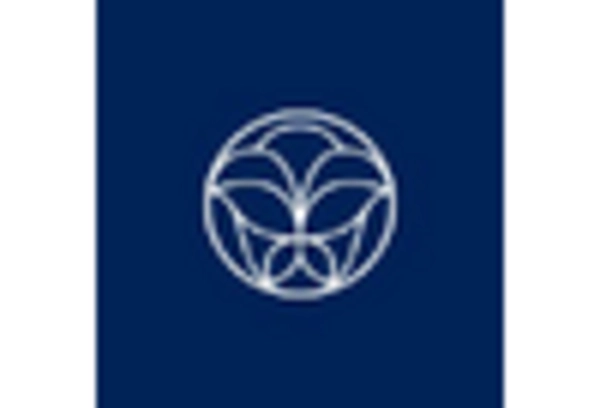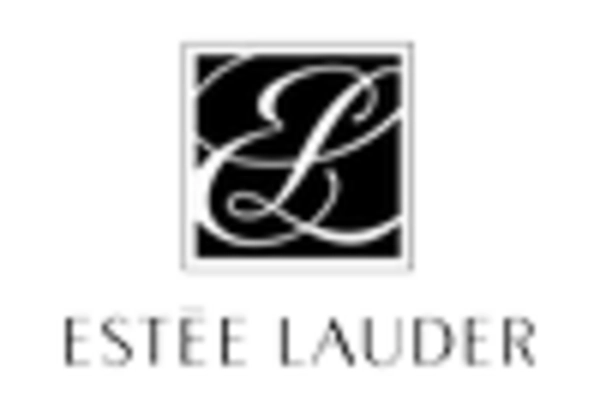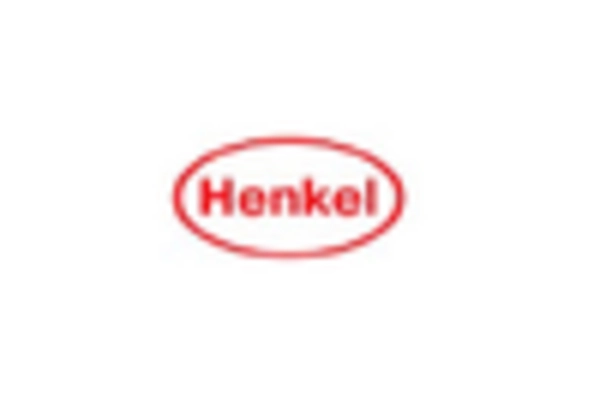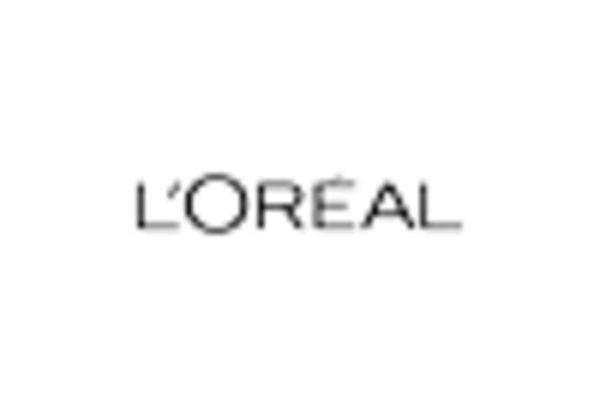Growth of E-commerce Platforms
The Hair Mask Market is witnessing a significant transformation due to the rapid expansion of e-commerce platforms. With the convenience of online shopping, consumers are increasingly turning to digital channels to purchase hair care products. Data indicates that online sales of hair care products have surged, accounting for nearly 30% of total sales in recent years. This shift is particularly advantageous for niche brands that may not have a strong presence in physical retail. The accessibility of product information and customer reviews online further empowers consumers to make informed choices, thereby driving growth in the Hair Mask Market.
Rising Awareness of Scalp Health
The Hair Mask Market is increasingly focusing on scalp health, as consumers recognize the importance of a healthy scalp for overall hair vitality. This awareness is leading to a demand for hair masks that not only nourish hair strands but also promote scalp wellness. Market data suggests that products targeting scalp health are gaining traction, with a projected growth rate of around 7% in this segment. As consumers seek holistic solutions for their hair care needs, brands are responding by developing innovative formulations that address both hair and scalp concerns, thereby expanding the Hair Mask Market.
Increasing Demand for Hair Care Products
The Hair Mask Market is experiencing a notable surge in demand for hair care products, driven by a growing awareness of hair health among consumers. As individuals become more conscious of the effects of environmental factors and styling practices on their hair, they are increasingly seeking products that offer restorative benefits. Market data indicates that the hair care segment is projected to grow at a compound annual growth rate of approximately 5.5% over the next few years. This trend suggests that consumers are willing to invest in high-quality hair masks that promise nourishment and repair, thereby propelling the Hair Mask Market forward.
Shift Towards Sustainable and Eco-Friendly Products
Sustainability has emerged as a pivotal driver in the Hair Mask Market, with consumers increasingly favoring eco-friendly and ethically sourced products. This shift is reflected in the rising popularity of brands that prioritize natural ingredients and sustainable packaging. Market Research Future suggests that approximately 60% of consumers are more likely to purchase hair care products that are environmentally friendly. As a result, manufacturers are adapting their formulations to meet this demand, leading to a proliferation of hair masks that align with sustainable practices. This trend not only enhances brand loyalty but also positions the Hair Mask Market favorably in a competitive landscape.
Influence of Celebrity Endorsements and Collaborations
Celebrity endorsements and collaborations are playing a crucial role in shaping consumer preferences within the Hair Mask Market. As influencers and celebrities promote specific hair care products, they significantly impact purchasing decisions among their followers. Market analysis reveals that products endorsed by well-known figures often experience a spike in sales, as consumers seek to emulate the hair care routines of their favorite stars. This trend underscores the importance of marketing strategies that leverage celebrity influence, thereby enhancing brand visibility and driving growth in the Hair Mask Market.


